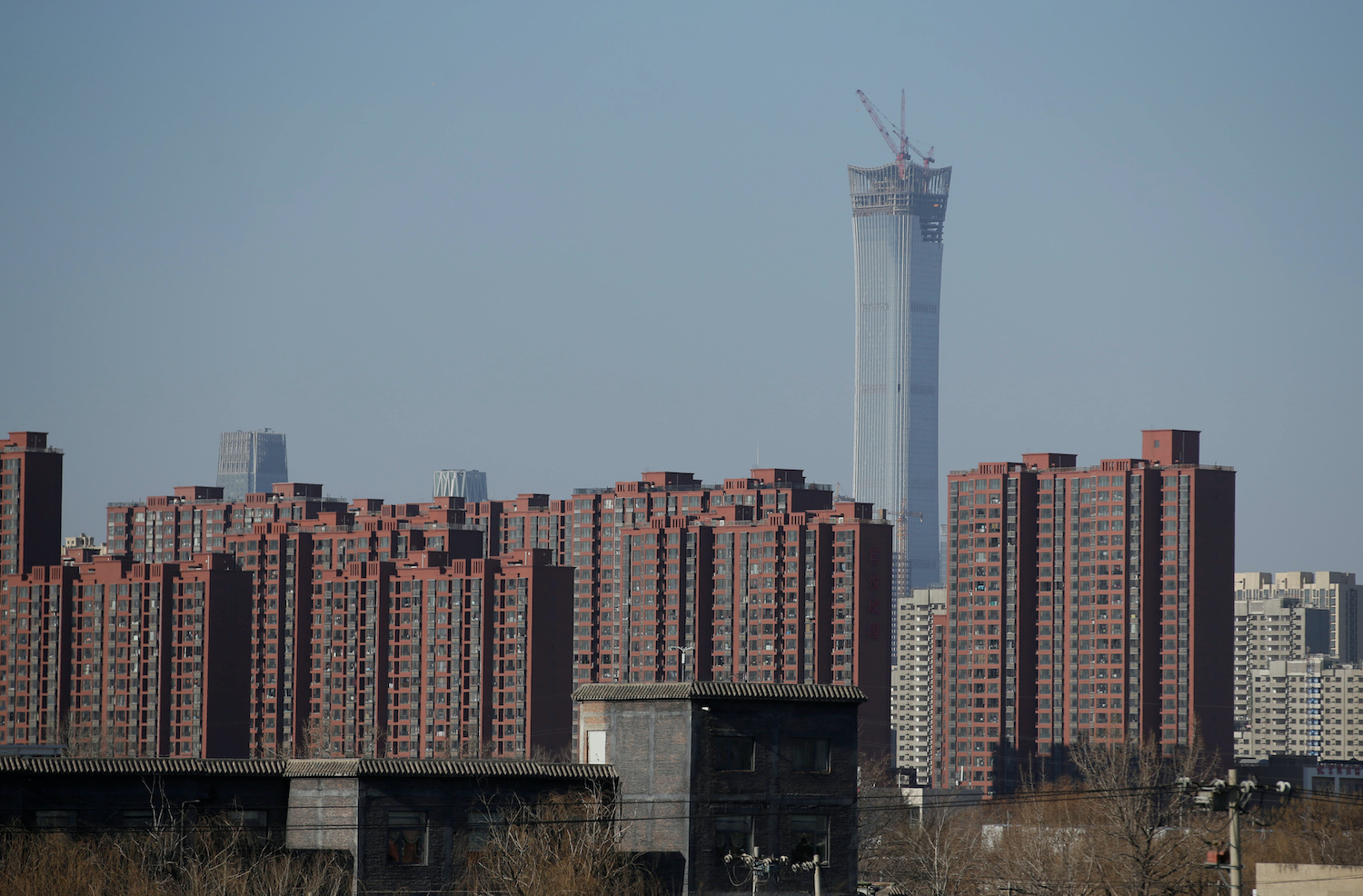China’s new home prices stalled for the first time since February 2020 in September, official data showed on Wednesday, as the chill in the property market intensified amid tightening credit due to an ongoing crackdown on speculative investment.
The average new home price in 70 major Chinese cities was unchanged in September month-on-month, compared with 0.2% growth in August, according to Reuters calculations based on data released by the National Bureau of Statistics (NBS).
The data also showed just 27 cities reported month-on-month gains, compared with 46 in August, the lowest since February 2020 at the height of China’s Covid-19 outbreak.
In September, some cities intensified their campaigns to drive speculators out of the property market. In Xiamen, the southeastern city further tightened property curbs on top of existing measures, prohibiting first-time home buyers from reselling their properties for five years.
Tightening credit market
The tougher restrictions, along with tighter rules on borrowing for property purchases, have weighed on near-term demand, analysts said.
“Real estate credit tightening – with home loans down by 510 billion yuan ($79.8 billion) year-on-year in the third quarter – was the biggest reason for the overall market freeze,” said Zhang Dawei, chief analyst with property agency Centaline.
Chinese leaders, fearful that a persistent property bubble could undermine the country’s long-term ascent, are likely to maintain tight property curbs, although analysts say they could soften some tactics as needed.
Compared with a year earlier, China’s new home prices grew 3.8% in September, the slowest in nine months, easing from a 4.2% increase in August.
Compounding concerns about the sector are the debt problems of China Evergrande, the country’s second-largest developer, which is scrambling to raise funds to pay its many lenders and suppliers.
Tens of thousands of Chinese developers had borrowed heavily to build homes during a surge in the property market between 2016 and 2018. But they are now facing a liquidity crunch amid tighter regulations on fresh borrowing, leaving many projects incomplete.
“Many developers have recently been exposed to a liquidity crunch, leading buyers to worry about buying buildings that are forever unfinished,” Zhang said.
“It is expected that in the fourth quarter of 2021, the markets in most cities will enter an obvious adjustment cycle.”
- Reuters with additional editing by Jim Pollard
ALSO READ:
China pushes for property tax to rein in runaway home prices
Rise in home prices a further test for China’s regulators
Home prices falling in some China cities
























